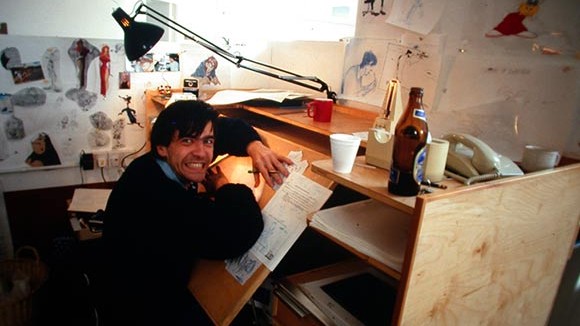

How A ‘Roger Rabbit’ Producer Punished An Artist for Wage-Sharing

Last week, we reported that vfx company Sony Pictures Imageworks, run by Bob Osher, one of Sony’s highest paid employees, tricks young artists into thinking that discussing wages with co-workers is “unprofessional.”
Ask almost any economist and they’ll tell you that’s awful advice for employees; knowing your co-workers’ salaries is beneficial, says Princeton economics professor Alexandre Mas, because it allows an employee to negotiate higher salaries and look elsewhere for better-paying work.
As the head of Sony Imageworks and Sony Pictures Animation, Bob Osher’s job is to control costs (and employees), but the scare tactics he uses to intimidate young artists who don’t even work for him yet are not only disturbing, but borderline illegal. In the United States in fact, it is unlawful for a company to prevent workers from discussing wages or to punish them for having done so.
Osher’s shameful management tactics, however, are nothing new. I was reminded of this when the estimable animator Uli Meyer posted some thoughts on Facebook about his first major gig working on Disney’s Who Framed Roger Rabbit. With Uli’s consent, here is his story about how one Disney producer punished him for sharing wages:
In regards to the recent discussion about Sony illegally advising their employees not to tell their fellow artists about what they earn I can tell you a little story. When I got hired as a young animator to work on Who Framed Roger Rabbit in 1987 the producer offered me a weekly wage of £700 which I accepted.
It was my first job in animation and I had no idea what animators were paid and had no idea if this was good pay. I had just moved to the UK and £Sterling was a new currency to me. I told my animator friends what I was offered and it turned out that several older, more experienced animators had been offered much less.
I was called back into the producer’s office the next day and told that I made a big mistake telling others about my wages and as punishment he reduced my salary by 50%, take it or leave it. The producer said that in this business one should never talk about what one earns. That advice was as wrong then as it is today.
I hated the idea of having to keep secrets from my friends and was made an example of what would happen if you talked. I never really cared about money as one doesn’t at the age of 22 and moved on to animate Dumbo [in Roger Rabbit] but it left a very bitter taste of what it is like to work for big and rich corporations.
If you have your own stories about wage-sharing, share them in the comments or send them here.

